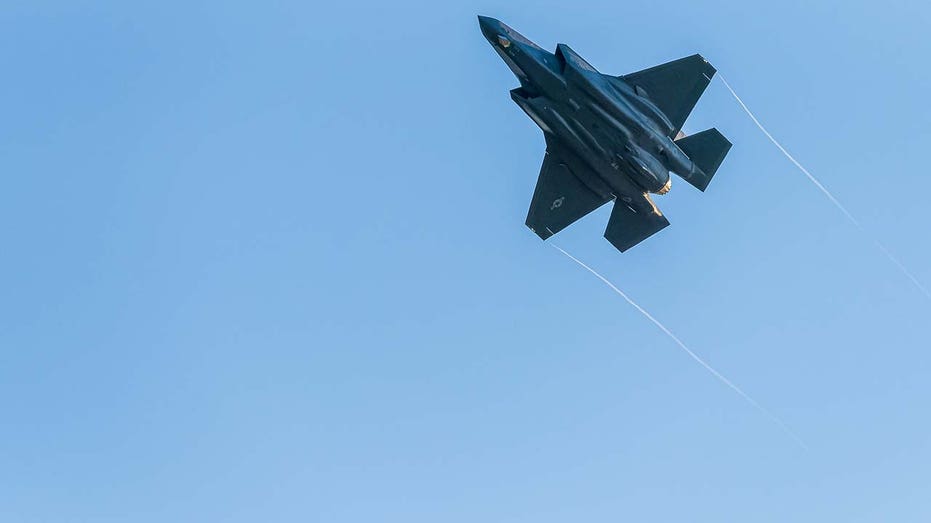Chinese intelligence officer sentenced to 20 years for espionage targeting GE Aviation
The Chinese spy sought to obtain trade secrets around sensitive technologies from U.S. and French aviation companies.
China, TikTok looking to use ‘all sorts of tech’ for ‘espionage, blackmail’: Brendan Carr
Senior Republican and FCC Commissioner Brendan Carr discusses the Chinese Communist Party’s data harvesting practices for its ‘malign goals.’
11/16/22 – An intelligence officer for the Chinese government was sentenced to 20 years in prison on Wednesday for committing economic espionage and attempting to steal trade secrets from GE Aviation, an aerospace-oriented subsidiary of General Electric.
Yanjun Xu, 42, is the first Chinese intelligence officer ever to be extradited to the U.S. to stand trial. He was convicted by a federal jury in Cincinnati on November 5, 2021, on multiple charges related to attempted economic espionage and trade secret theft. Court documents indicate he targeted GE Aviation to steal technology related to GE Aviation's composite aircraft engine fan module – which hasn't been duplicated by any other company in the world – to benefit the Chinese military and aviation sector.
"As proven at trial, the defendant, a Chinese government intelligence officer, used a range of techniques to attempt to steal technology and proprietary information from companies based in both the U.S. and abroad," Attorney General Merrick Garland said in a press release. Chinese officials previously claimed the charges against Xu were a "pure fabrication."

General Electric logo is seen through magnifier in front of displayed Aviation, Energy, Healthcare words in this illustration taken, November 9, 2021. (REUTERS/Dado Ruvic / Reuters Photos)
CHINA CALLS CHARGES AGAINST SPY CONVICTED OF ATTEMPTING TO STEAL US TRADE SECRETS ‘PURE FABRICATION’
According to the Dept. of Justice, Xu's career as an intelligence officer began in 2003, and he rose to the rank of deputy division director at the Chinese Ministry of State Security (MSS), the intelligence and security agency for China. Xu's efforts to obtain trade secrets from U.S. companies that are recognized as leaders in the aviation field began in 2013.
He used aliases and front companies to deceive employees of those companies, recruited them to travel to China under the guise that they would give presentations at a university, and paid them for travel expenses. Xu and others in the MSS would hack or copy the aviation employees' computers while they were unwittingly taken to dinner by the MSS.
TWO CHINESE SPIES CHARGED WITH ALLEGEDLY OBSTRUCTING US INVESTIGATION INTO HUAWEI
Xu would also talk openly about efforts to obtain information about U.S. military programs in addition to commercial aviation trade secrets in conversations with his assets and targets. His espionage efforts also extended to U.S. allies, as he recruited assets inside a manufacturing facility in China that belonged to the French aerospace company Safran, according to a court filing. The assets installed malware in an effort to infiltrate the company's network in France.
He also was involved with handling an individual named Ji Chaoqun, who was convicted in September 2022 for working on behalf of the MSS under Xu's orders and joined the U.S. Army with the intent of securing a top-secret security clearance. Ji was apprehended after he told an undercover FBI agent that he had access to U.S. military bases and volunteered, without prompting, to photograph American aircraft carriers for the MSS.

This photograph taken on October 16, 2019 shows US Navy F/A-18 Super Hornets multirole fighters and an EA-18G Growler electronic warfare aircraft (2nd R) on board USS Ronald Reagan (CVN-76) aircraft carrier as it sails in South China Sea on its way t (Photo by Catherine Lai/AFP via Getty Images / Getty Images)
TAIWAN TALKS TRADE WITH US, BRITAIN AS CHINA TENSIONS LOOM OVER BIDEN-XI MEETING
Xu's espionage scheme unraveled after a GE Aviation employee in Cincinnati traveled to China for a presentation in May 2017. Upon the employee's return, they and GE Aviation worked with the FBI, which continued communications with Xu while posing as the worker. After Xu was emailed a two-page document that warned about the disclosure of proprietary information, he asked the employee to meet with him in Europe during a business trip and for a file directory from a company computer. Xu was arrested in Brussels, Belgium, on April 1, 2018, and extradited to the U.S. for trial.

Lockheed Martin F-35 Lightning II flys at Spangdahlem Air Base - ETAD on February 28, 2022 in Spangdahlem, Germany. ((Photo by Dietmar Pohlmann/DeFodi Images via Getty Images) / Getty Images)
CLICK HERE TO GET THE FOX BUSINESS APP
"This case is just the latest example of the Chinese government's continued attacks on American economic security – and, by extension, our national security," said FBI Director Christopher Wray. "The Chinese government tasked an officer of its spy service to steal U.S. trade secrets so it could advance its own commercial and military aviation efforts, at the expense of an American company. This brazen action shows that the Chinese government will stop at nothing to put our companies out of business to the detriment of U.S. workers," he added.
GE Aviation, which will be rebranded as GE Aerospace and spun off in January 2023 following a company-wide reorganization, produces turbine engines for a number of U.S. military aircraft. GE Aviation recently completed final testing on an upgraded engine for the F-35 Lightning stealth fighter. It also has produced engines for fighter jets like the F-15 Eagle and F/A-18 Super Hornet; the UH-60 Blackhawk and CH-47 Chinook helicopters; and the C-5 Galaxy strategic transport.




















